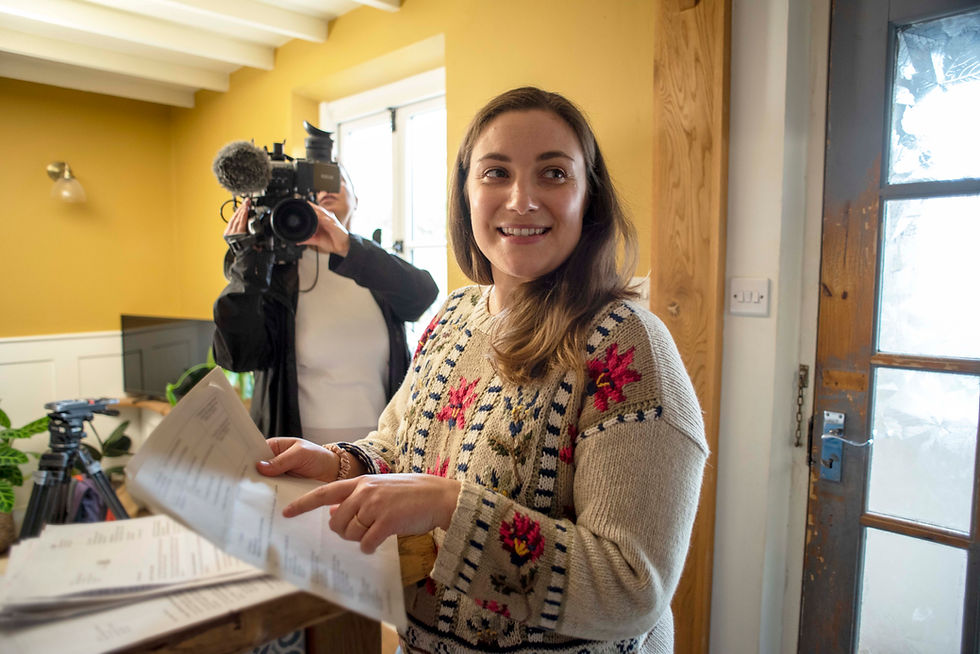Is there a need and a wish?
- Invisible Army

- Feb 22, 2021
- 3 min read
Is there a need to show pictures and a wish to share stories of the lives of unpaid cares and whom they care for?
We think society desperately needs to know what is going on behind the walls of families who look after others. In the middle of the Corona lock down much more light wash shone on what it is like to look after a loved one. With zoom we had a glimpse of what goes on behind closed doors. We would like to continue being transparent and honest.
“According to the 2011 Census , there were approximately 5.8 million people providing unpaid care in England and Wales in 2011, representing just over one tenth (10.3%) of the population.”
Carina and I took pictures and wrote stories of 7 families and exhibited them for a couple of days as a trial run at the Vestibules to find out if there is a need and a wish. We learned that a lot of carers are lonely and can suffer from breakdowns when money is tight and mental health is fragile.
Here are comments from visitors and participants:

"The photos are amazing and I'm really pleased with what you have captured!
The only photo I'm not keen on is the close up photo of my face, but all the others are beautiful, I can't thank you enough. I'm so pleased we were able to take part in this project. Thank you so much." Carla.
"We are absolutely delighted with how all the photos came out. It really captured the moment very well. Very impressive! With much gratitude." Pearl, Amena and Khemeta.

Tahira who came with her friend Mary expressed the need to get Asian communities to come forward. Often they don't see themselves as unpaid carers as those duties are expected of them. The two of them remembered looking after their parents at the same time and how without you noticing it you start doing their shopping once a week and end up staying over contemplating moving in as your mum or dad needs 24/7 care. My aim is to contact Pakistani Welfare Organisation, Bristol Black Carers, KHAAS, Bristol and Avon Chinese Women's Group. Hopefully they would like to be part of Invisible Army.

Julie turned round and with red eyes said: "This is so moving."
Jeanette kindly wrote: "I just wanted to congratulate you and Tina to your exhibition! It was so moving. Having three photos to look at - together with the text describing the pictures and situation - created a story for each of the families. The photos were personal and the text well written, as it allowed a real insight into what caring for people is like, the challenges, frustrations and struggles, the tiredness and exhaustion. But also the moments of joy."

Fortune and Tim found that it was great to see that they are not alone. There are many people in the same situation.
Our conclusion is that we can empower carers and unite them in their fantastic work and we can open the eyes to people who doesn't know what an unpaid carer is. Carina and I would like to continue finding carers who would like to take part. It is time consuming and not always easy to convince carers that they are actually unpaid carers but we would like to soldier on and open those doors and create The Invisible Army - Voices of unpaid carers.




Commentaires